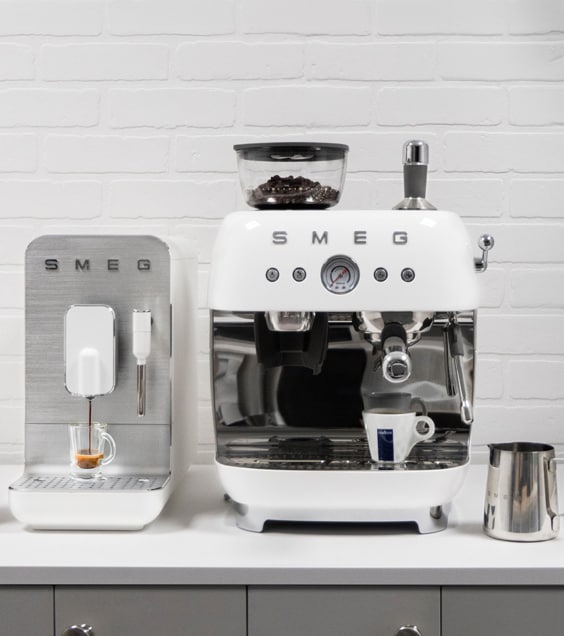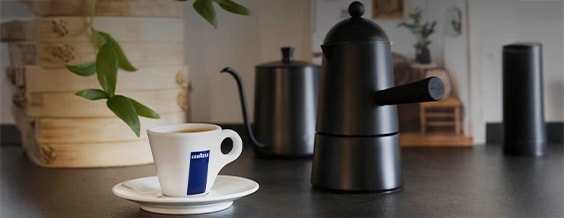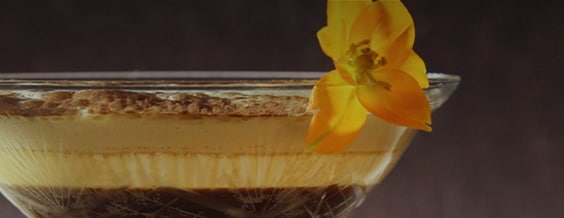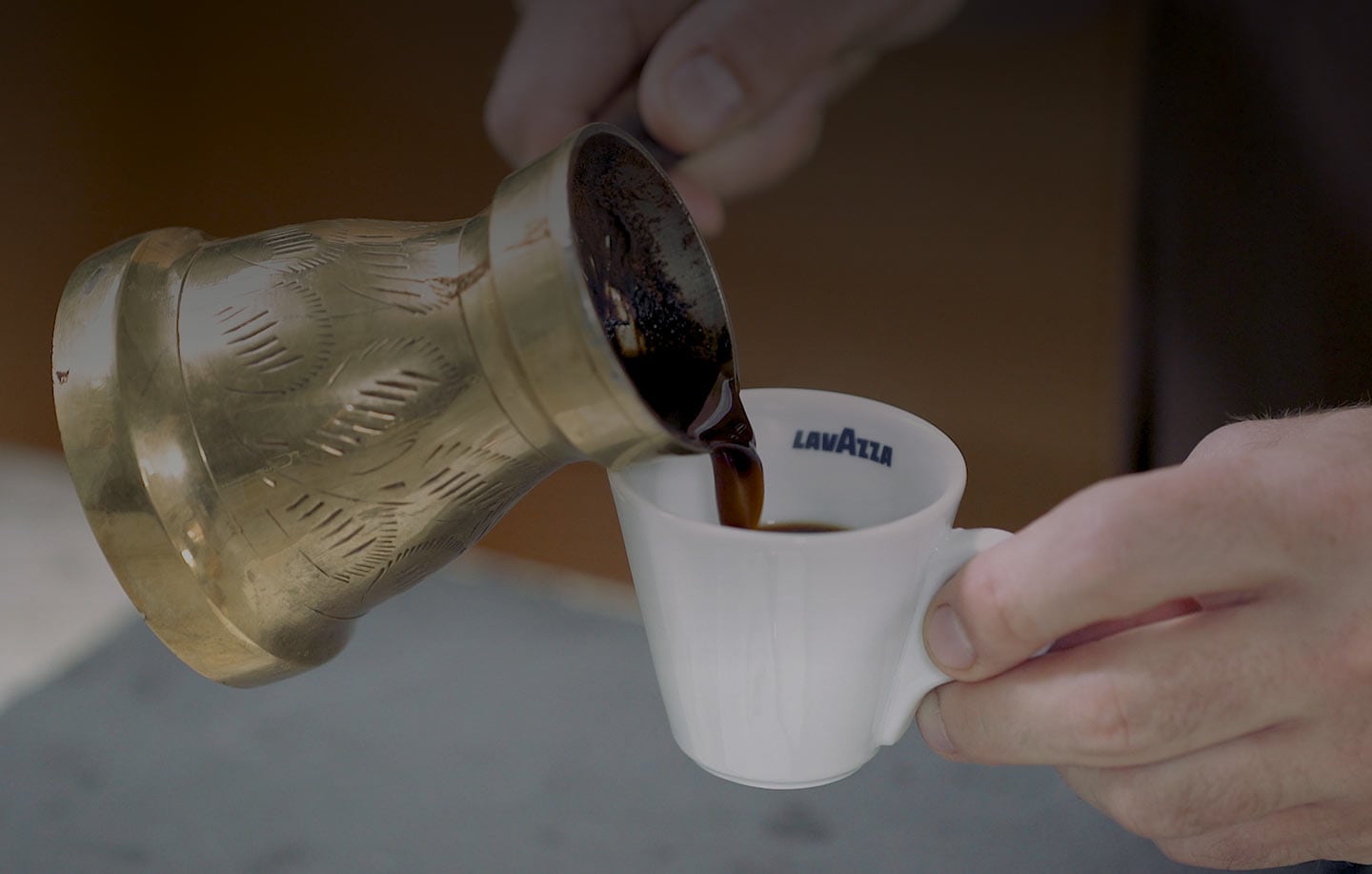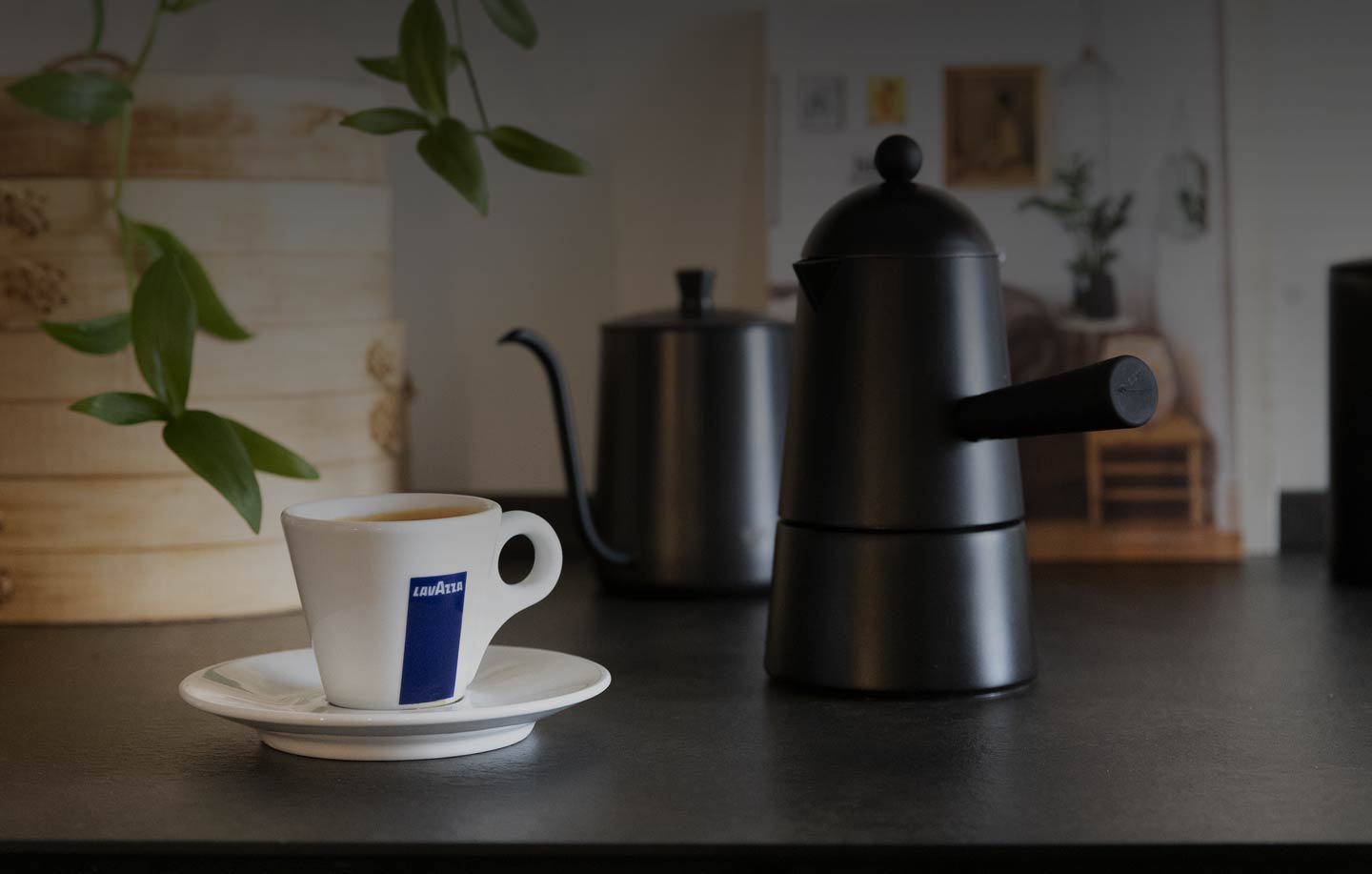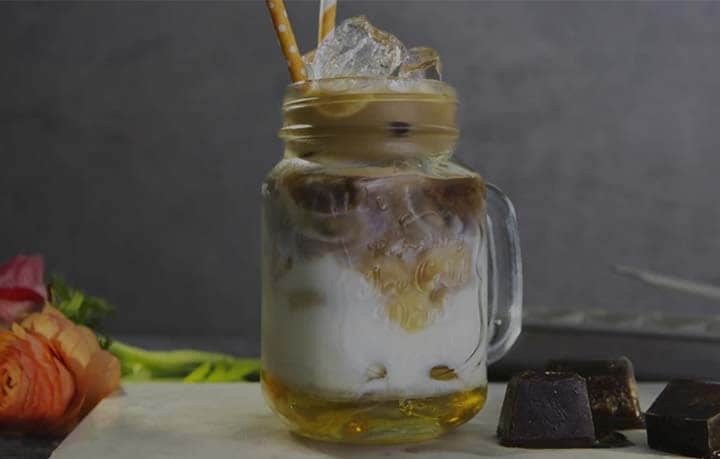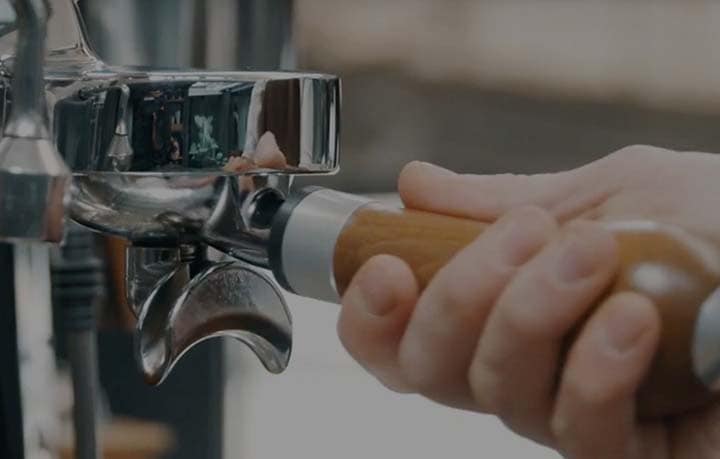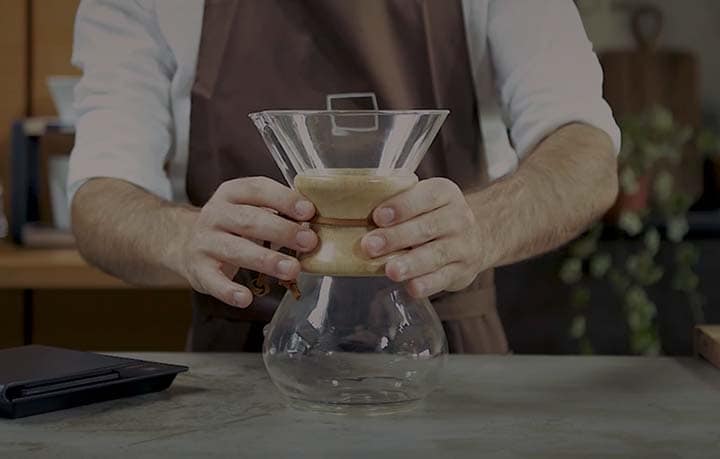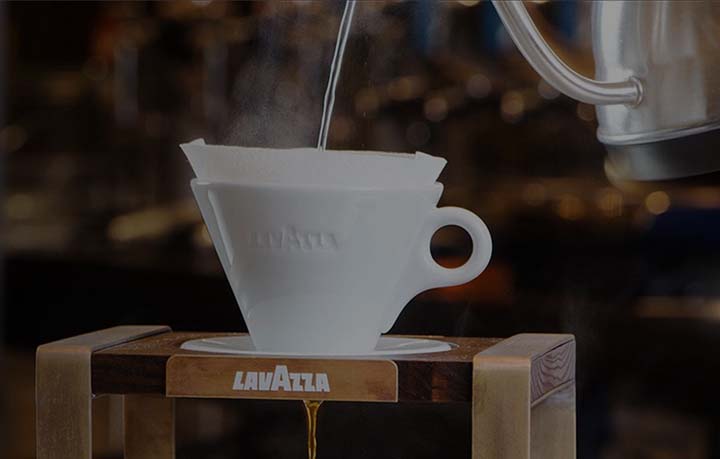*Lavazza is not affiliated with, endorsed or sponsored by Nespresso


The definition of decaf coffee
Today, there’s a delicious alternative to coffee that offers the same warmth and aroma, without the buzz of caffeine. Decaffeinated coffee gives you all the pleasures of a good brew, but not the sleepless nights. Discover more about decaf now.
What does decaf mean?
The decaf definition is simply coffee that’s been decaffeinated, so most of the caffeine content has been removed. Decaffeination doesn’t mean it’s completely caffeine-free, but it reduces it by around 97%, compared to a regular cup.
When it comes to coffee, the term ‘decaf’ is music to the ears of those who love the rich and robust flavour, but want to avoid the stimulating effects of caffeine.
How is decaf coffee made?
There are various ways to remove caffeine from the coffee beans. The method usually involves water, organic solvents, or carbon dioxide. And the process of decaffeination commonly begins by immersing beans in a solvent which extracts the caffeine.
An alternative approach, uses carbon dioxide or a charcoal filter. This is known as the Swiss Water Process for caffeine removal.
Decaffeination always occurs before the beans undergo roasting and grinding. So afterwards, decaf beans resemble regular coffee, but with lower caffeine levels.
Another concequence of the decaffeination process is that the taste and aroma of the coffee might become milder. This makes decaf a more appealing option for those who dislike the bitterness and strength of regular coffee.
The benefits of decaf coffee
There are many misconceptions surrounding decaf coffee. Many believe that decaf is tasteless, or lacks the complexity of regular coffee, but this is far from the truth. With the advancements in the decaffeination process, there’s an increasing demand for high-quality coffee beans. Many decaf options will please even the most discerning palates.
Less chance of addiction
Decaf offers the pleasure of a flavourful cup without the risk of addiction. Some might even prefer it, it as a result of its unique flavour profile and versatile brewing methods. You can embrace the experience and savour the taste, without worrying about the caffeine hit.
Taste
Some decaffeination methods preserve the incredible flavours and aromas of coffee beans. One such technique uses Liquid Dicarboxylic Acid to extract caffeine from raw coffee beans.
The mild conditions of this process help to preserve the coffee beans' original taste, richness, flavour, and smell. The beans treated in this way give you the best of both worlds:
Healthier than the original
Caffeine has been associated with various health risks, particularly for people with a sensitive metabolism. It can also affect things like blood pressure. With a decaf espresso you can savour all the pleasure of an intense cup, without any associated risks.
Drink as much as you want
With its lower caffeine content, decaf allows you avoid jitters, a racing heart, or restless nights that caffeinated drinks can bring. With decaf, you can enjoy cup after cup without side effects.
A coffee that can be enjoyed at night
One of the best things about decaf is that you can enjoy a relaxing cup of coffee after a long, hard day. It’s perfect for after a meal and when chatting with friends, or spending quality time with your partner. Decaf still has that great aroma and comforting taste, but it won’t affect your sleep – even if you drink it late at night.

